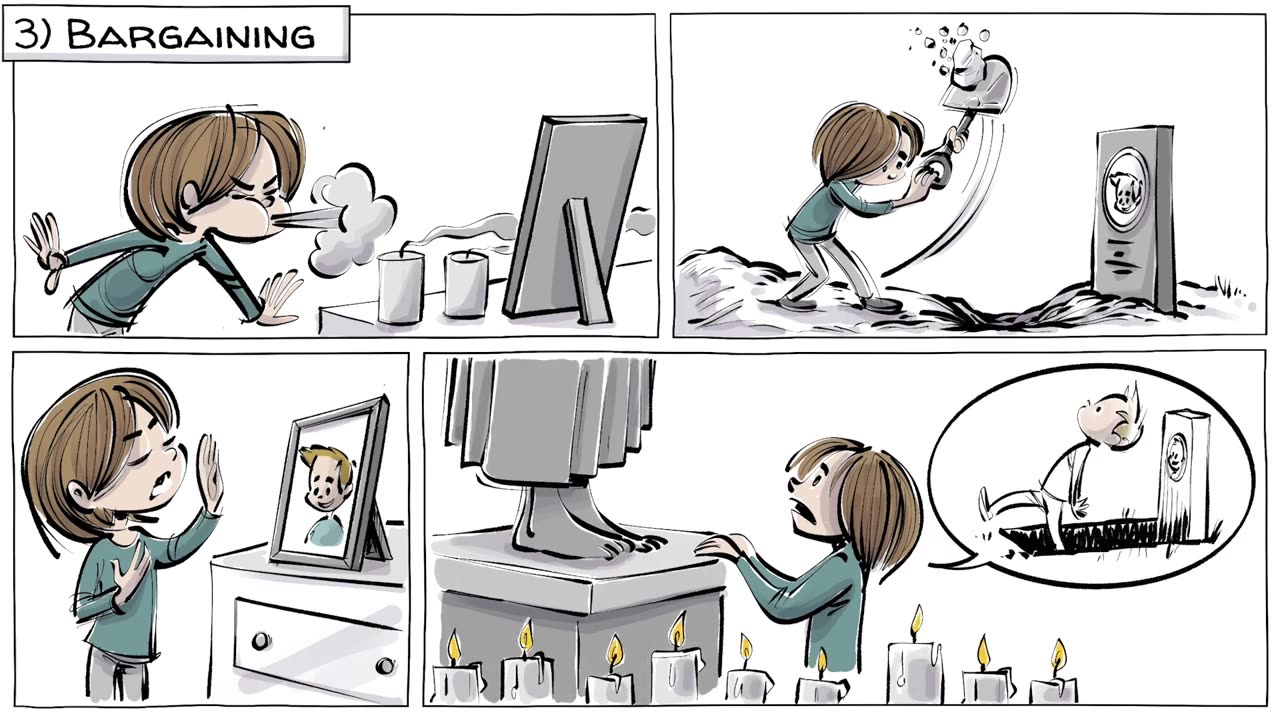Premium Only Content

The Five Stages of Grief
The five stages of grief are a model proposed by Elisabeth Kübler-Ross to describe the emotional and psychological responses that people may experience after experiencing a significant loss. The stages are:
Denial: This is a state of shock and disbelief. The person may refuse to believe that the loss has happened or may minimize its impact.
Anger: This is a natural response to feeling powerless and helpless. The person may lash out at others or blame themselves for the loss.
Bargaining: This is a way of trying to control the situation and make things right. The person may make promises to God or other higher powers in exchange for the loss being reversed.
Depression: This is a state of sadness and despair. The person may withdraw from others and lose interest in activities that they used to enjoy.
Acceptance: This is a state of coming to terms with the loss and moving on with life.
It is important to note that not everyone experiences the five stages in the same way or in the same order. Some people may skip stages or experience them simultaneously. Additionally, the grieving process is not linear, and people may go back and forth between stages at different times.
The five stages of grief can be a helpful framework for understanding and coping with loss. However, it is important to remember that grief is a complex and individual experience. There is no right or wrong way to grieve, and there is no timeline for when someone should move on.
If you are grieving, it is important to reach out for support from friends, family, or a professional. There are also many resources available online and in your community to help you cope with loss.
-
 24:19
24:19
marcushouse
6 hours ago $0.06 earnedWhy Is Starship So Difficult to Get Right?
5.9K1 -
 13:47
13:47
T-SPLY
2 hours agoDemocrats Hit The Lowest Approval Ratings In The History Of the Party
4.03K3 -
 13:22
13:22
Degenerate Jay
23 hours ago $5.76 earnedSilent Hill F Looks Amazing - Is This The Future Of Silent Hill?
37.4K8 -
 19:29
19:29
Clownfish TV
1 day agoGamers Blamed for DOGE.
17.5K34 -
 11:47
11:47
Tactical Considerations
14 hours ago $4.12 earnedAB Suppressors Ribbed For Silence..
32.1K1 -
 15:08
15:08
NinjaGamblers
19 hours ago $0.89 earnedAggressive Fisher's Method at Roulette: How to Win $600 in an Hour
15.8K10 -
 1:12:44
1:12:44
TheDozenPodcast
19 hours agoTerrorist MACHETE attack left me for dead: Tal Hartuv
27.2K13 -
 6:06
6:06
scoutthedoggie
1 day agoAirsoft Warfare Scotland
16K3 -
 6:15:31
6:15:31
SpartakusLIVE
14 hours ago#1 BIG BRAIN releases the FULL POWER of his CEREBRAL DOMINANCE
135K10 -
 57:19
57:19
Man in America
22 hours ago🚨 Disaster Expert: Weather Warfare Hasn't Stopped Under Trump—Are You Ready for What's Coming?
81.7K166